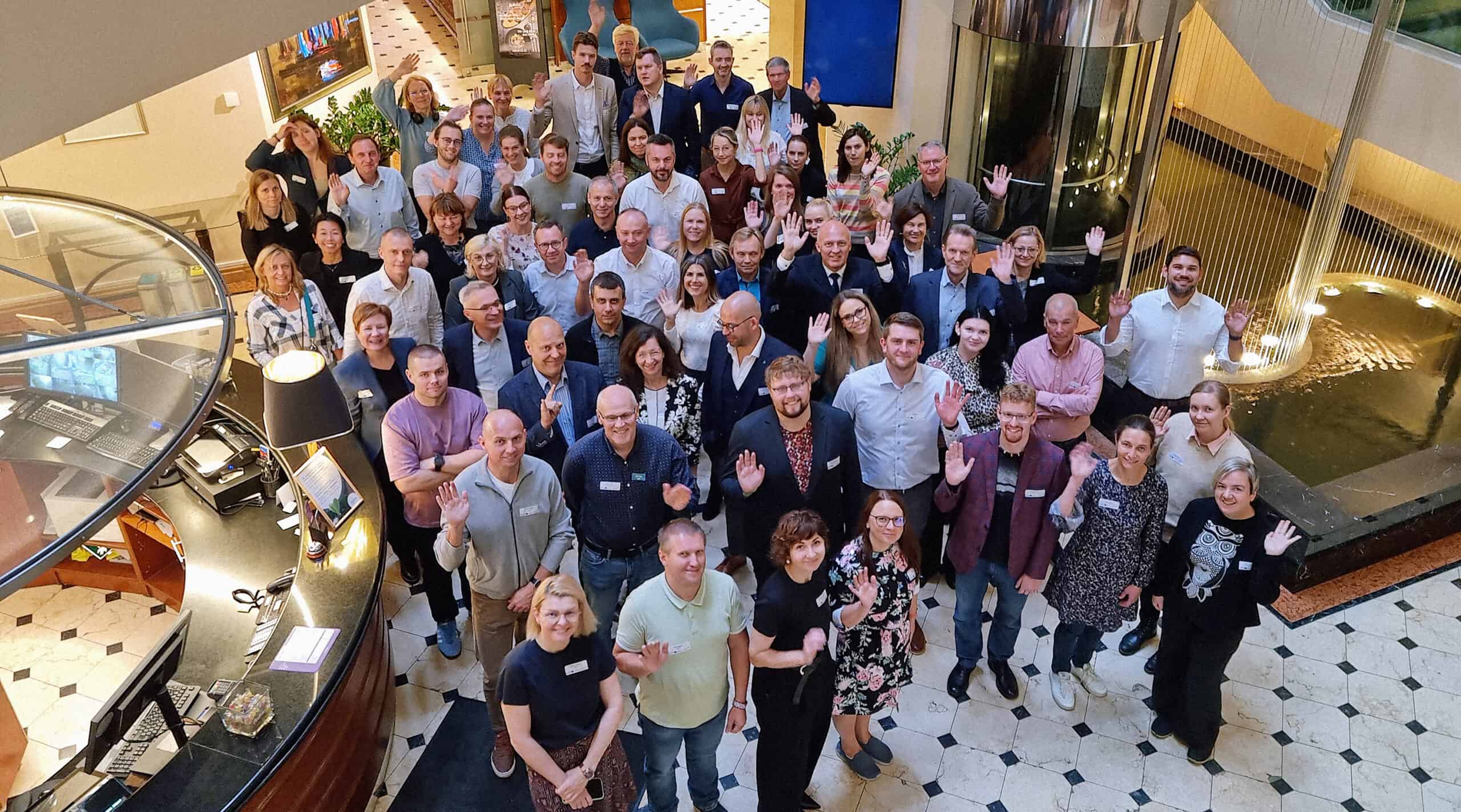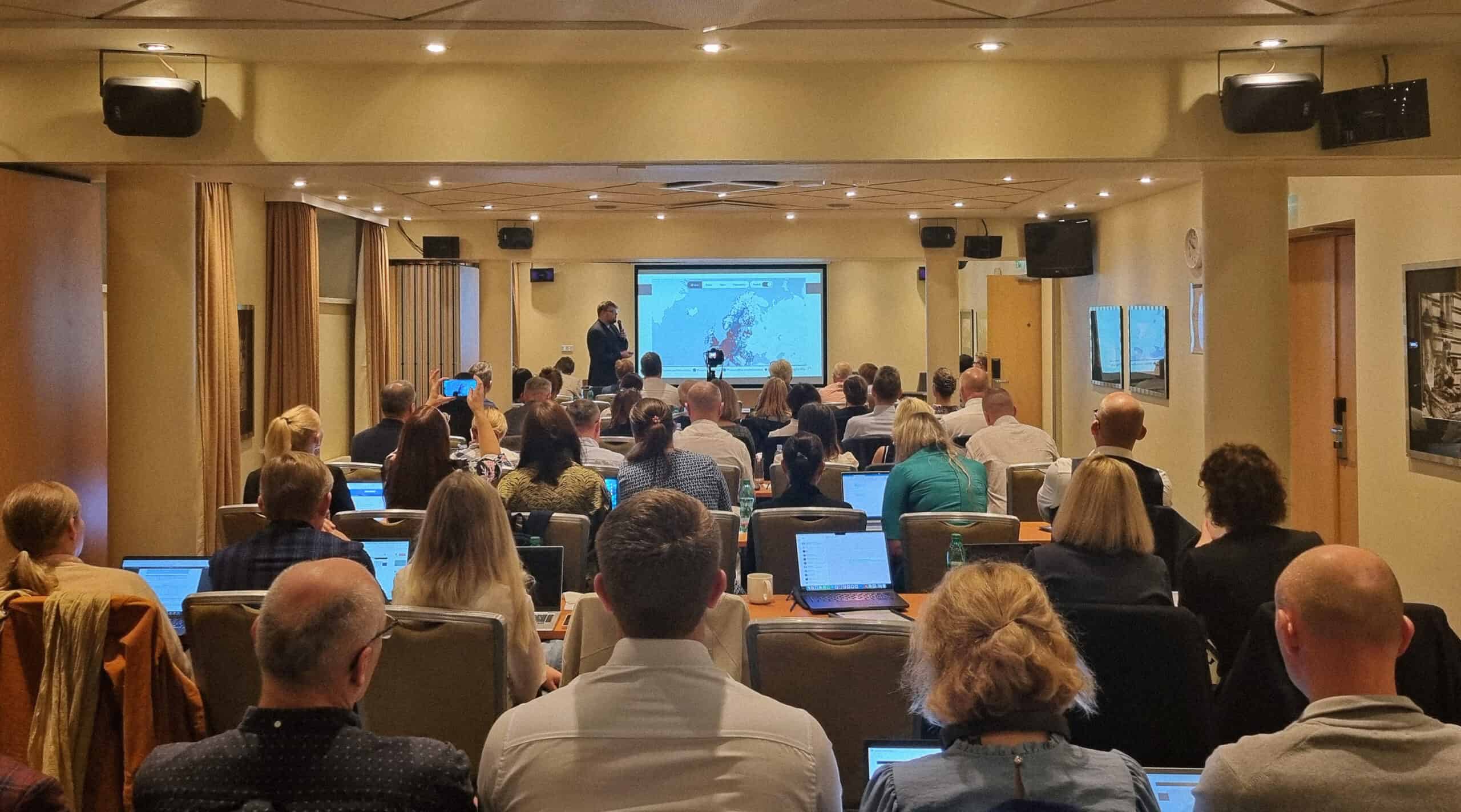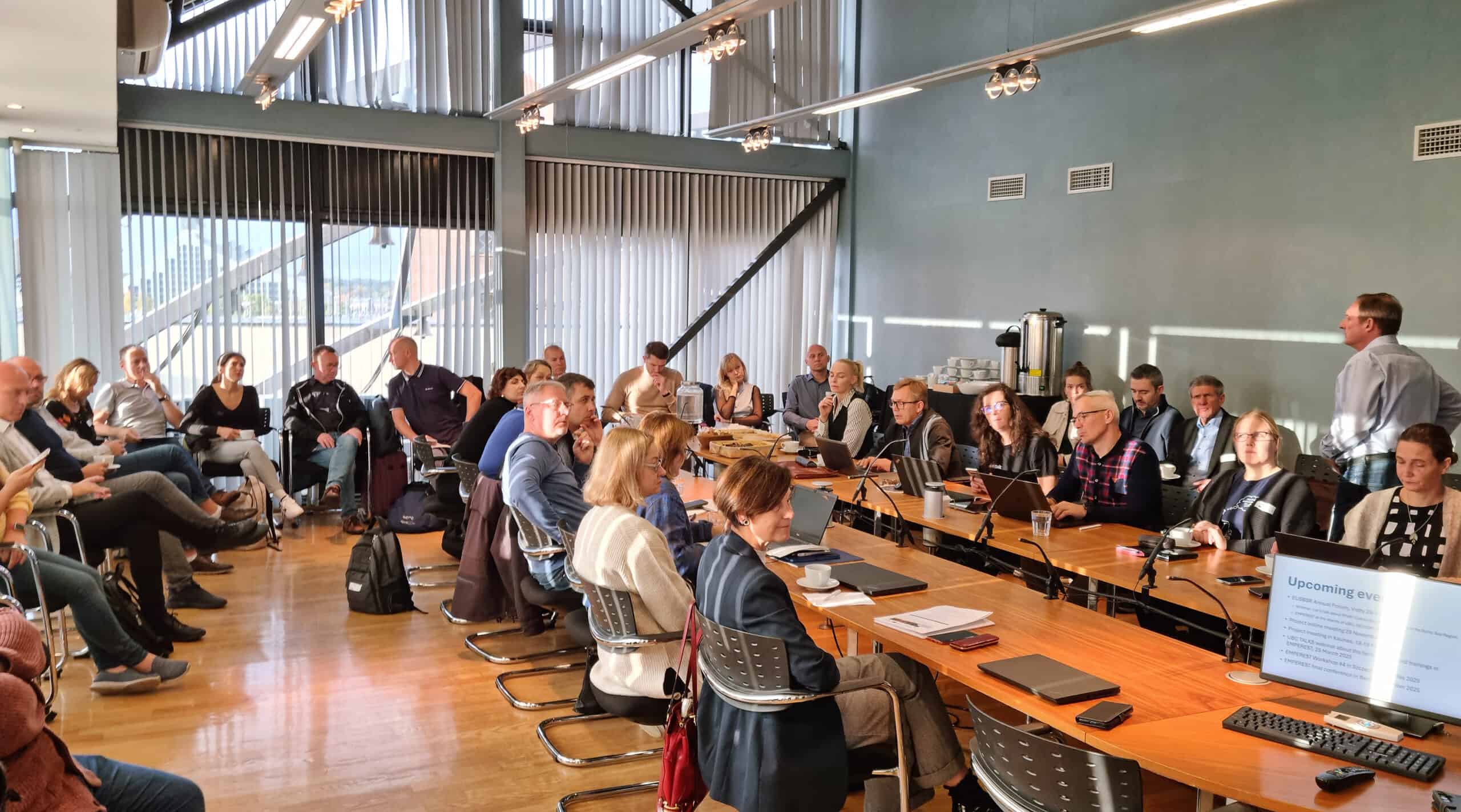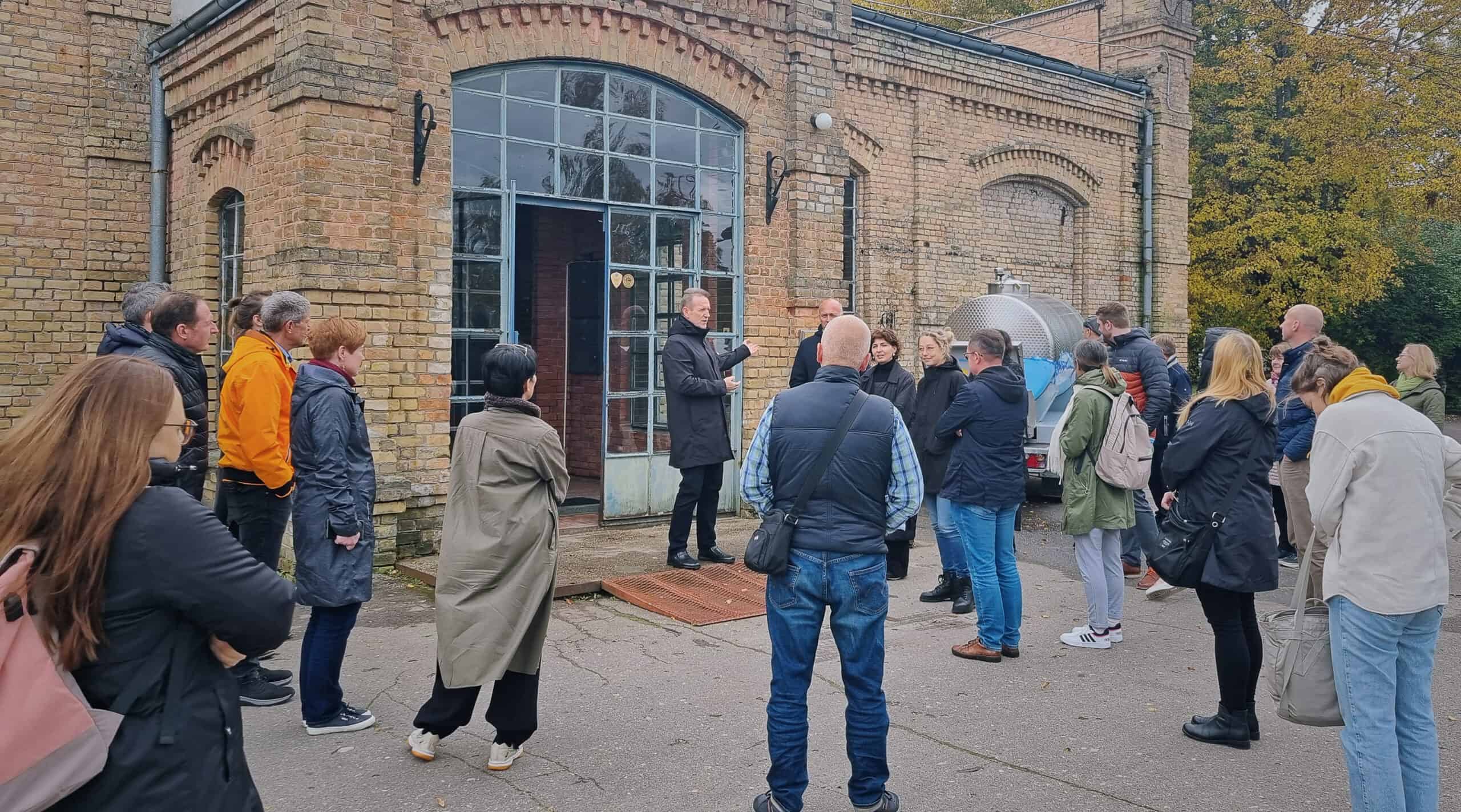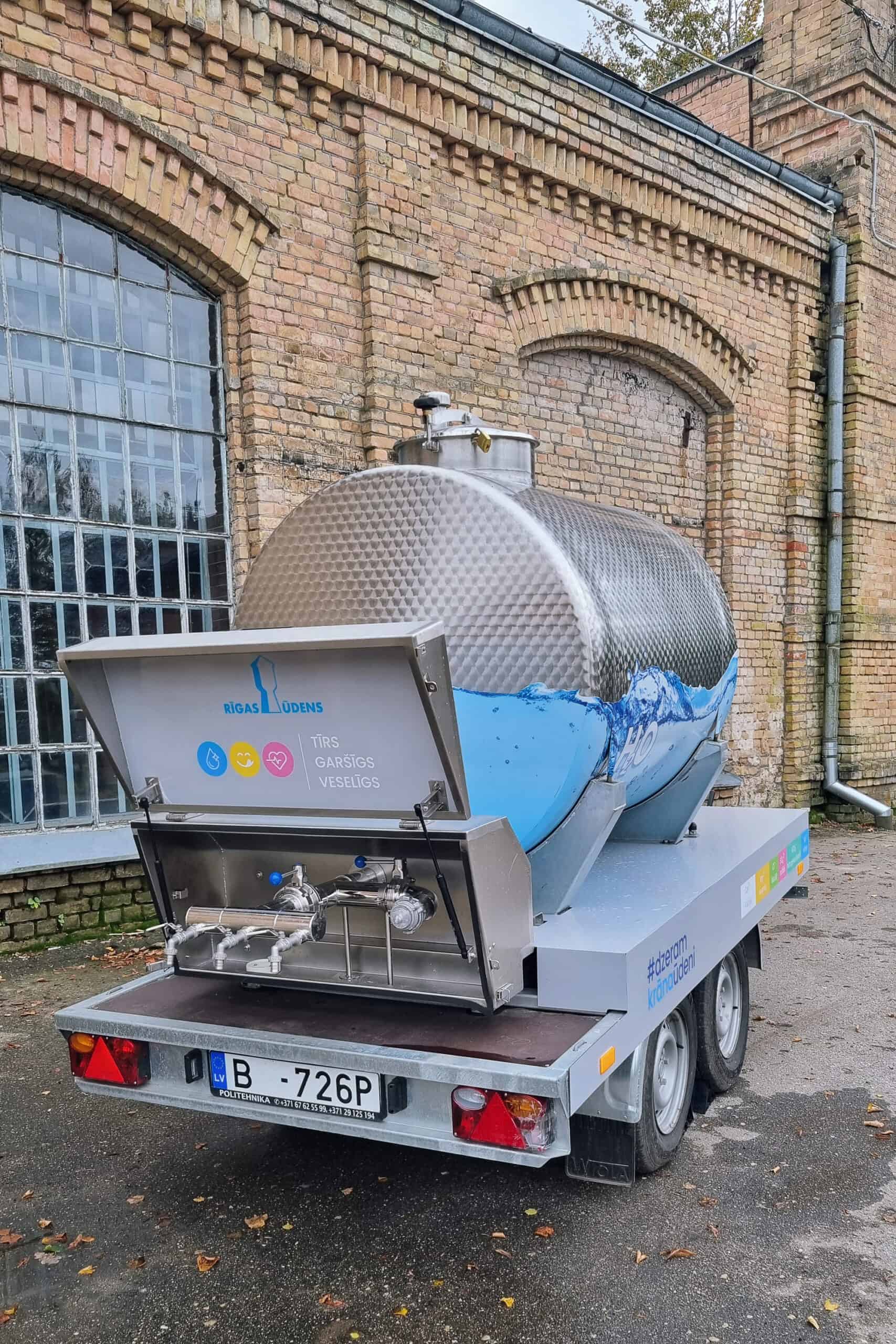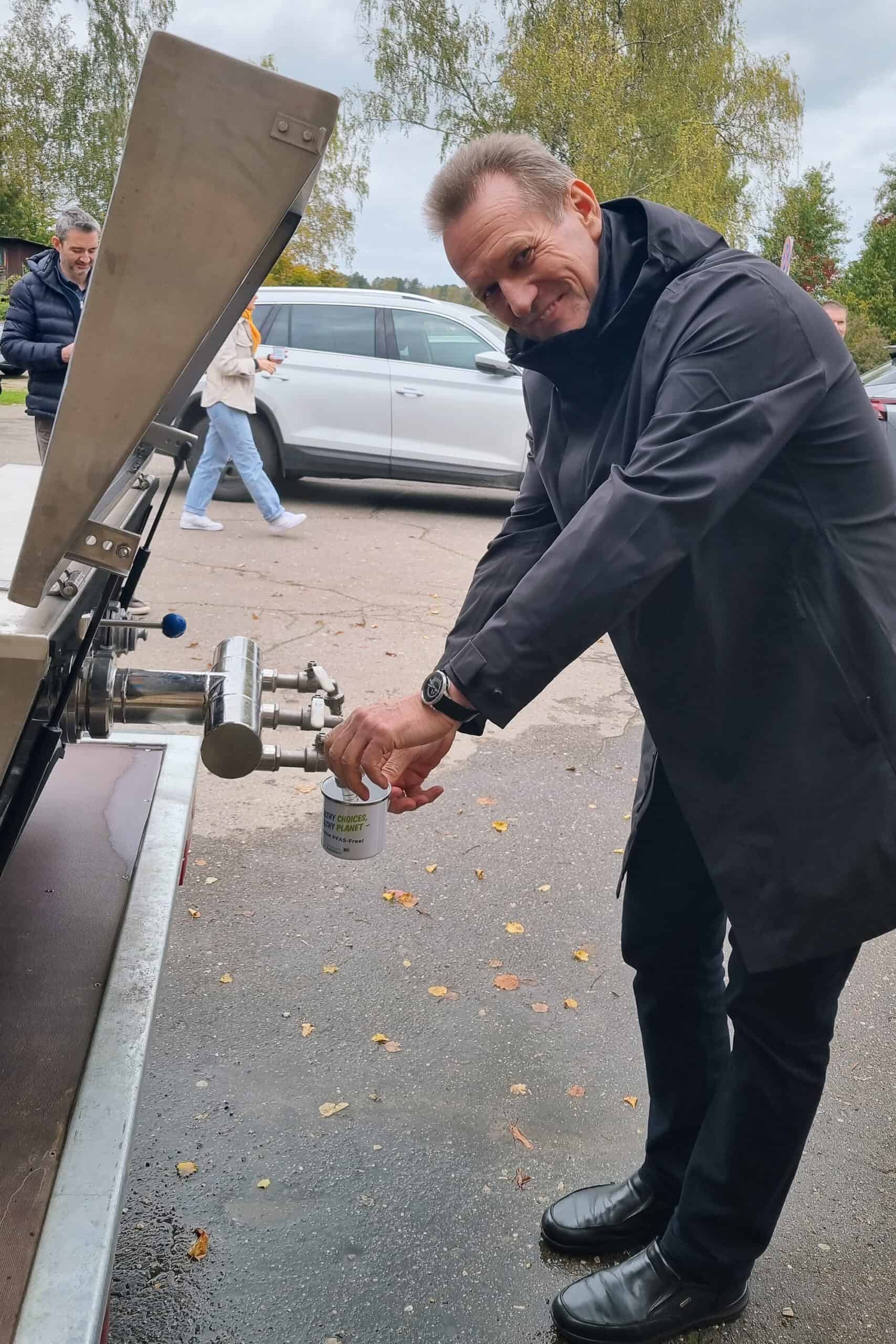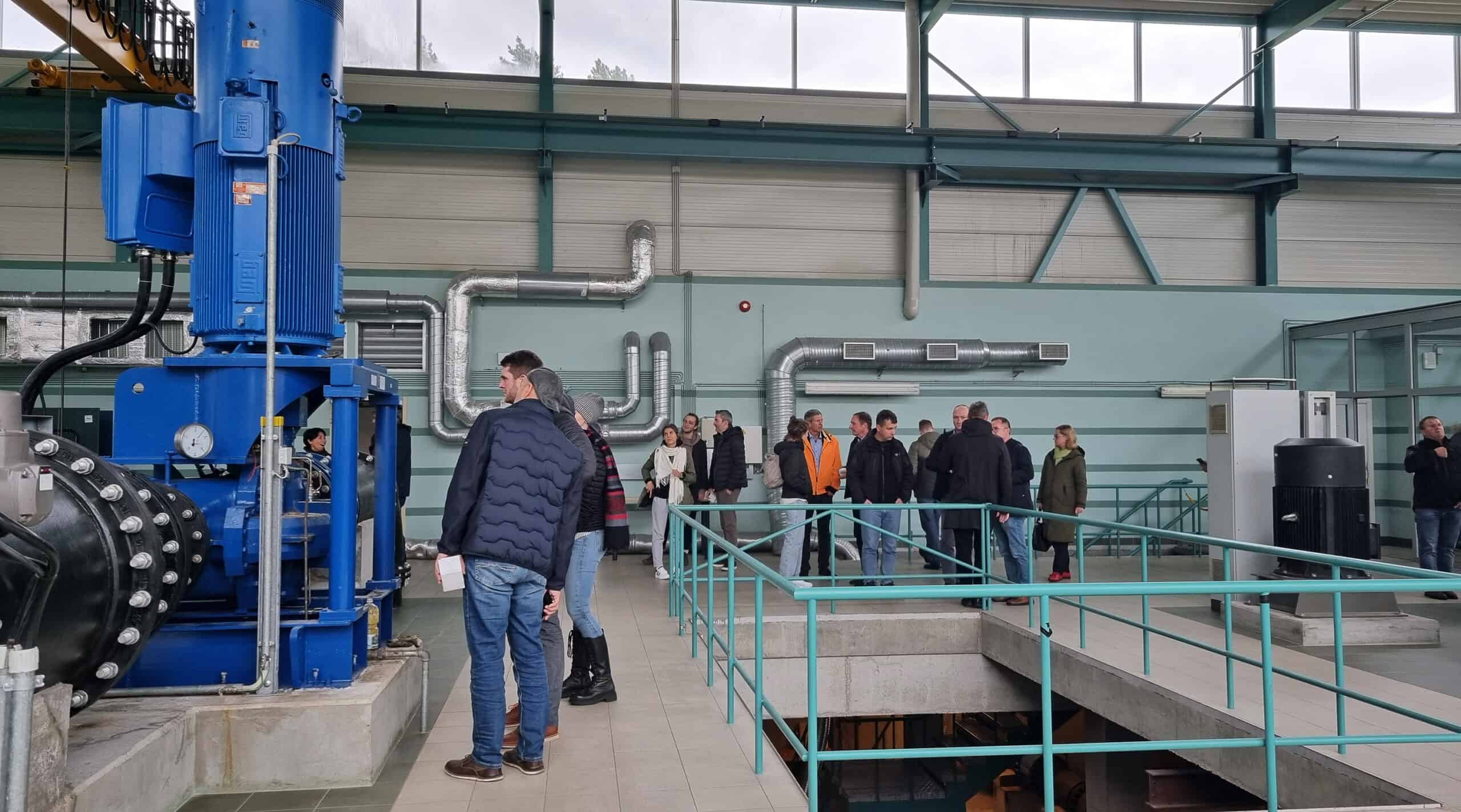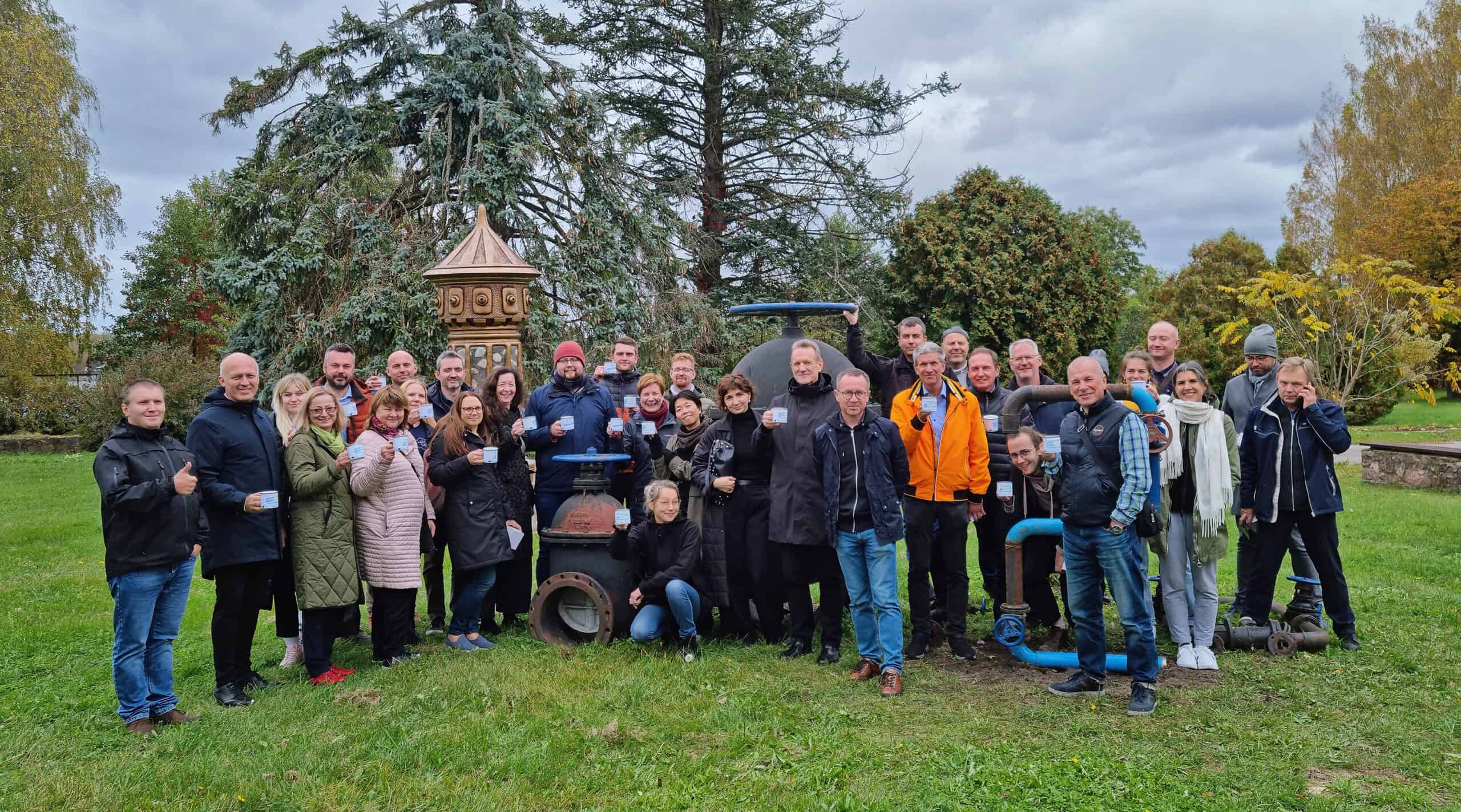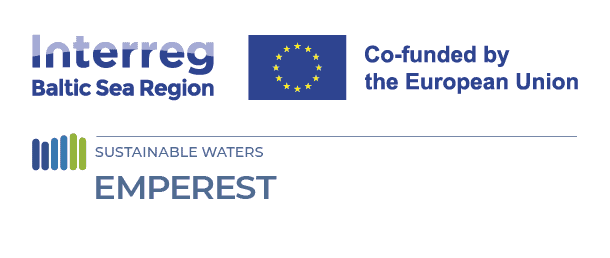
PFAS risks and how to manage them: EMPEREST workshop in Riga
17 October 2024
Risk management requires manifold activities across different sectors: to investigate and communicate the existing and upcoming risks, to locate a solution, and to impact the policy making. During the EMPEREST workshop, the discussion around PFAS risks brought together representatives of key Latvian sectors involved in it, incl. the ministry and the city, water company and universities, in addition to the international experts.
The expert meeting was opened by the Chairman of the Riga City Council Viesturs Zeps, outlining the key priorities of the city. The City of Riga strives to make the city climate-neutral, green, and liveable, and PFAS has been on the strategic agenda of many politicians.
“Riga City Council is very happy to be part of the EMPEREST project. We will make sure to bring the results of this workshop to the city to further plan activities and funding.”
— Viesturs Zeps, Chairman of the Riga City Council, Chair of the Housing and Environment Committee.
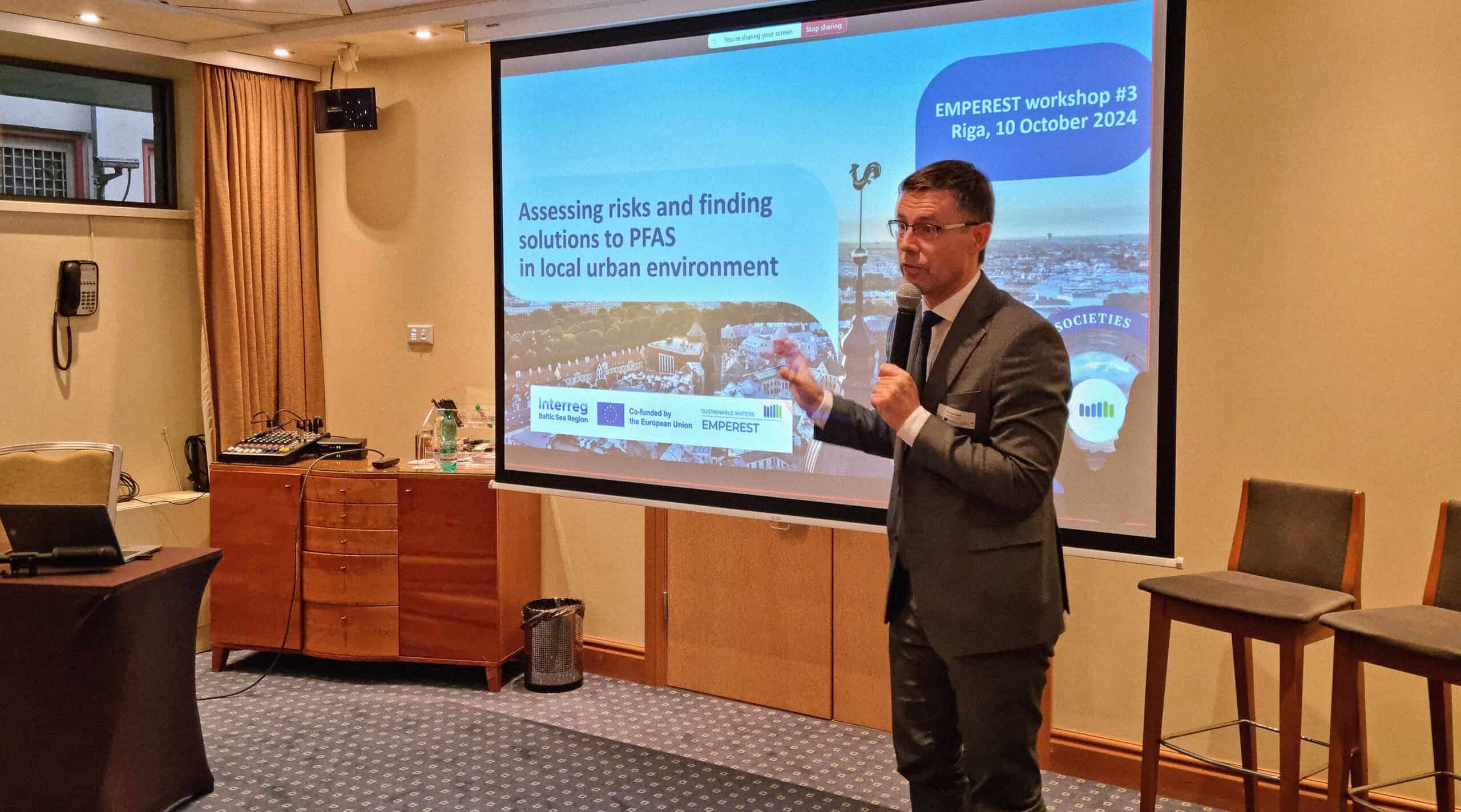
On the photo: Viesturs Zeps opening the EMPEREST workshop.
When did you first hear about PFAS?
The eternal life of the ‘forever chemicals’ has a relatively clear starting date with the invention of Teflon – but when did the experts in the Baltic Sea Region first hear about it? This red thread, which spanned throughout the event, embraced all speakers in first hearing about PFAS in 2000s, although it wasn’t until mid-2010s when the active measures against these micropollutants became more regular in BSR.
Today we know that PFAS can cause harm to the health of humans and animals. Yet, it’s extremely easy to get exposed to PFAS these days: one can get it through eating and drinking, with air or dust, and through the contact with the skin. Their environmental fate is equally varied, and PFAS compounds can demonstrate different environmental behaviour, some majoring in volatility and others in adsorption, water solubility, and transformation. So, what can a city do?
Piia Leskinen from Turku University of Applied Sciences proposed some actions that local authorities could take when starting to address PFAS. The first steps are linked with identifying the threat: preparing a hotspot map for assessing risks, getting information about PFAS, informing citizens, and subsequently reducing the application of PFAS in the identified areas. Further actions on PFAS reduction can be implemented through the public procurement, as municipalities have a big buying power.
“Cities need to turn their regulations into actions.”
— Piia Leskinen, Principal Lecturer and Researcher in the Water and Environmental Engineering research group at the Turku University of Applied Sciences.
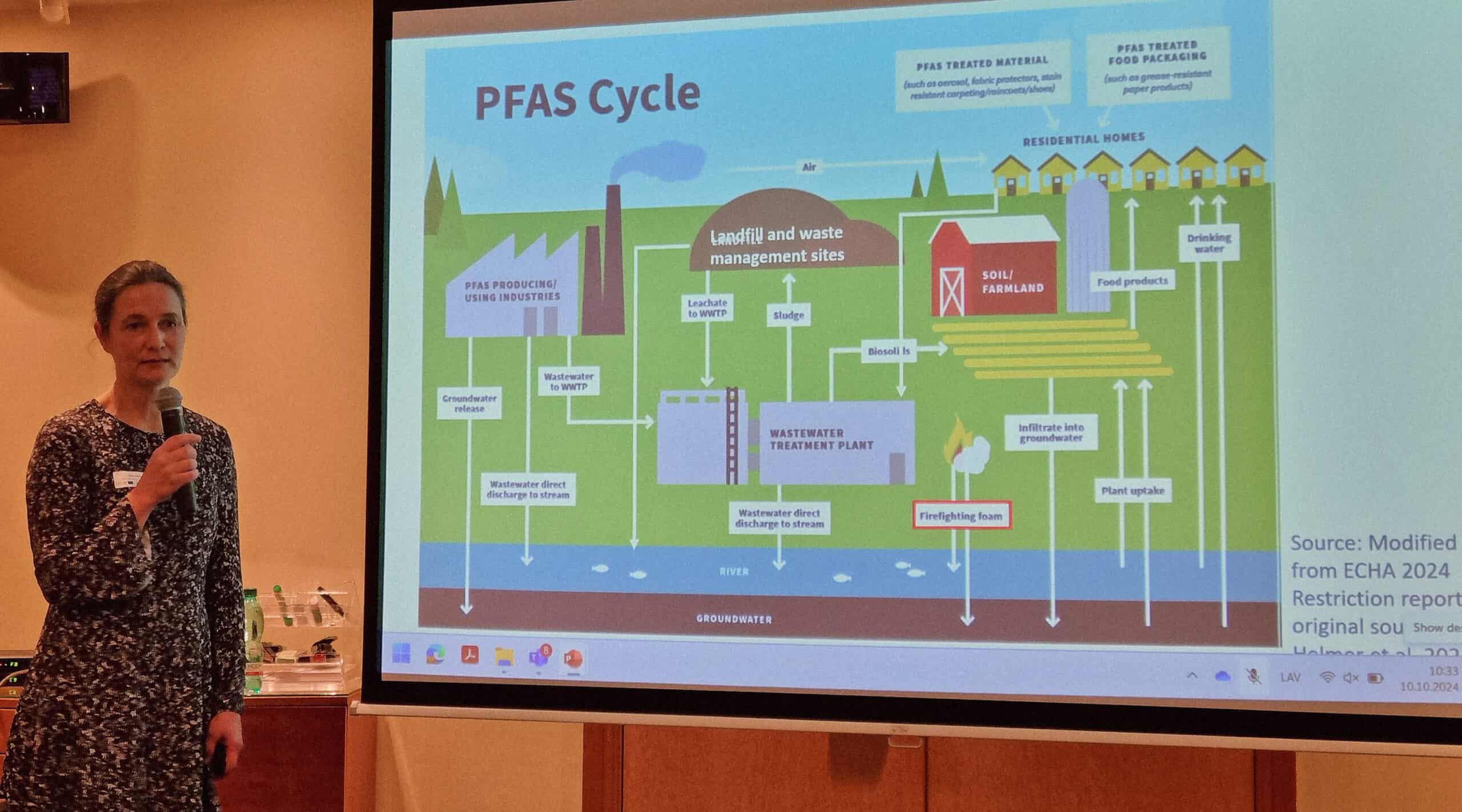
On the photo: Piia Leskinen presenting the PFAS cycle in the environment.
The question of local and national actions was further addressed in the presentations of Bertil Lustig from Swedish Water & Wastewater Association and of Iveta Teibe from the Ministry of Climate and Energy of Latvia. Mr Lustig shared experiences on the how the cities of Uppsala and Kallinge have dealt with PFAS contaminated groundwater. The discoveries of polluted water have led to complicated remediation actions, court cases on financial responsibility – and on national strategies trying to prevent similar cases in the future. Ms Teibe presented existing requirements for monitoring and highlighted the current PFAS monitoring activities in Latvia for surface water, groundwater, and wastewater. PFAS are being detected everywhere, although the current threshold limits are not exceeded.
“All policies regarding PFAS are in the forming stage. We need the action part – what to do on the national and local level.”
— Iveta Teibe, Head of Water Resources Division at the Ministry of Climate and Energy.
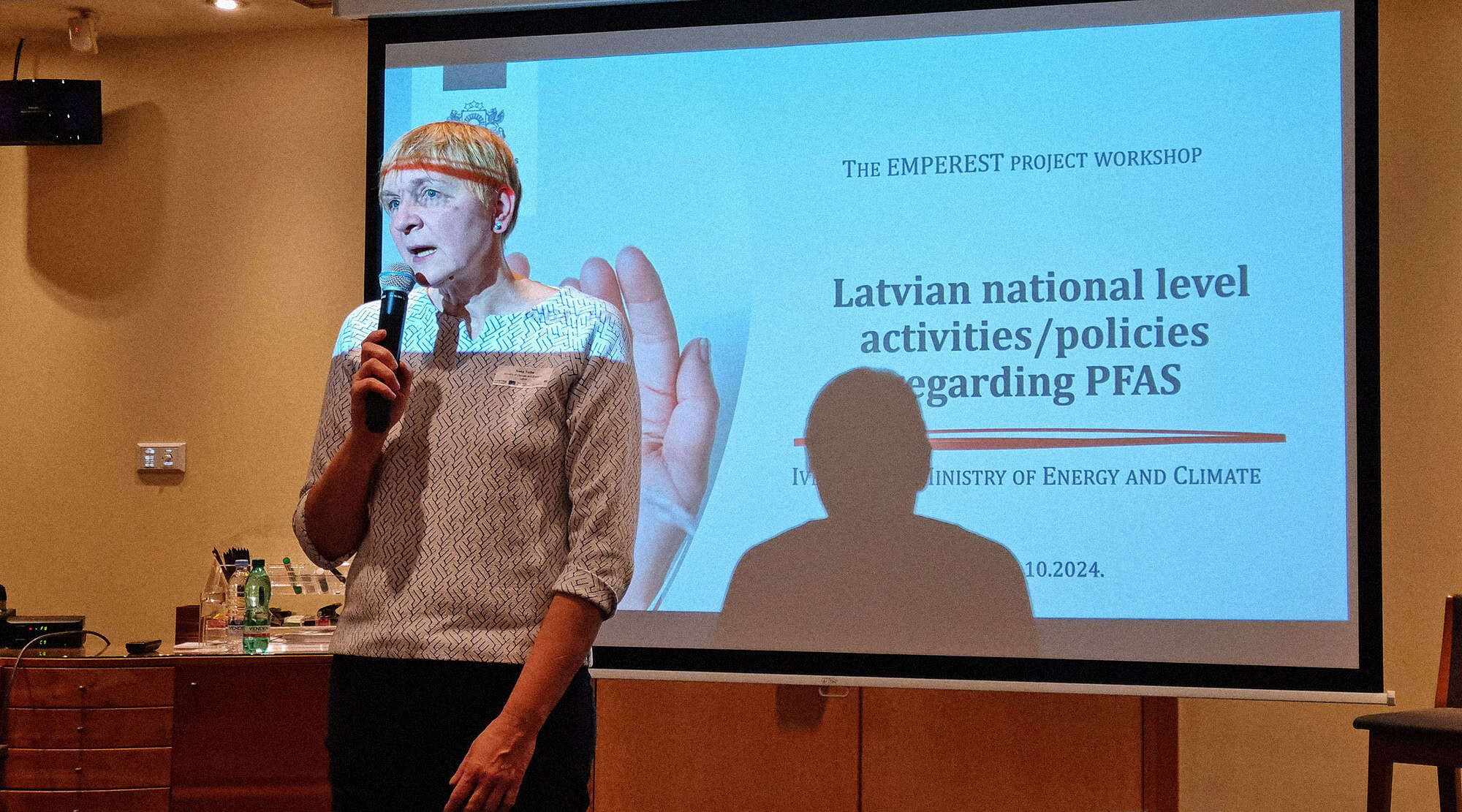
On the photo: Iveta Teibe delivering the presentation about Latvian national level activities and policies regarding PFAS.
EMPEREST tool for risk assessment
The EMPEREST project, and particularly the Riga team including the city (Māra Reča), water company (Māris Zviedris) and the Riga Technical University (Kamila Gruškeviča), is developing a tool for assessing local PFAS risks. PFAS can be found everywhere, but it would be both highly expensive and close to impossible to analyse every local source for its presence: the risk-assessment saves the day, allowing to detect major hotspots for further analysis.
The PFAS risk assessment tool is on its way to the launch in summer 2025 (find the draft concept file among EMPEREST solutions) – meanwhile it is being updated based on the feedback of cities that pilot it. Active role here is played by EMPEREST associated organisations, motivated by the available knowledge and willing to take part in testing of the project outputs.
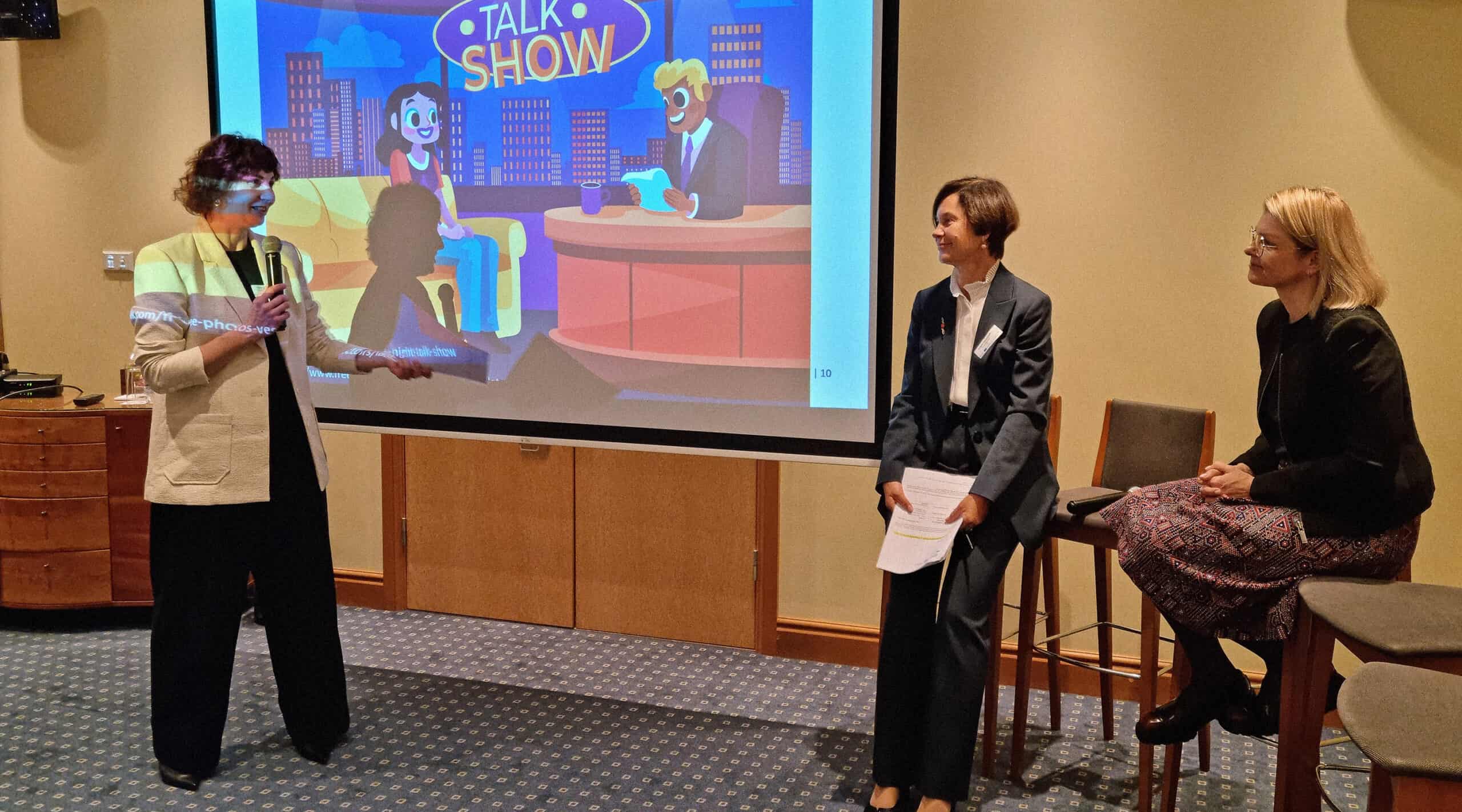
On the photo: Kamila Gruškeviča leading the ‘talk show’ with Angelė Plančiūnaitė (Panevėžys Water Ltd.) and Kristina Kokina (Jurmala water Ltd.) representing the organisations that already tested the EMPEREST PFAS risk assessment tool.
PFAS in local community
The experiences and solutions for PFAS in cities were brought together in a panel discussion that involved water associations from Germany, Sweden and Latvia, the Latvian Ministry of Climate and Energy and the Riga Water company.
The main challenge that was outlined by the panel was an urgent lack of knowledge and the general low PFAS awareness. Connected to that, the issue of the water sector needing more young professionals was also highlighted, followed by the exchange of experiences on how to make water engineering more attractive for potential employees. Part of the challenge with PFAS are the industries that might not be aware of the chemicals that they dispose of, and another stakeholder group requiring capacity development on the topic are the regulating authorities that would benefit from having their staff educated on PFAS – and from having enough resources to monitor the implementation of regulations.
“We should be the ones to fill in the information gaps. We must talk together and communicate with the society.”
— Sandis Dejus, Executive director of the Latvian Water and Wastewater Works Association.
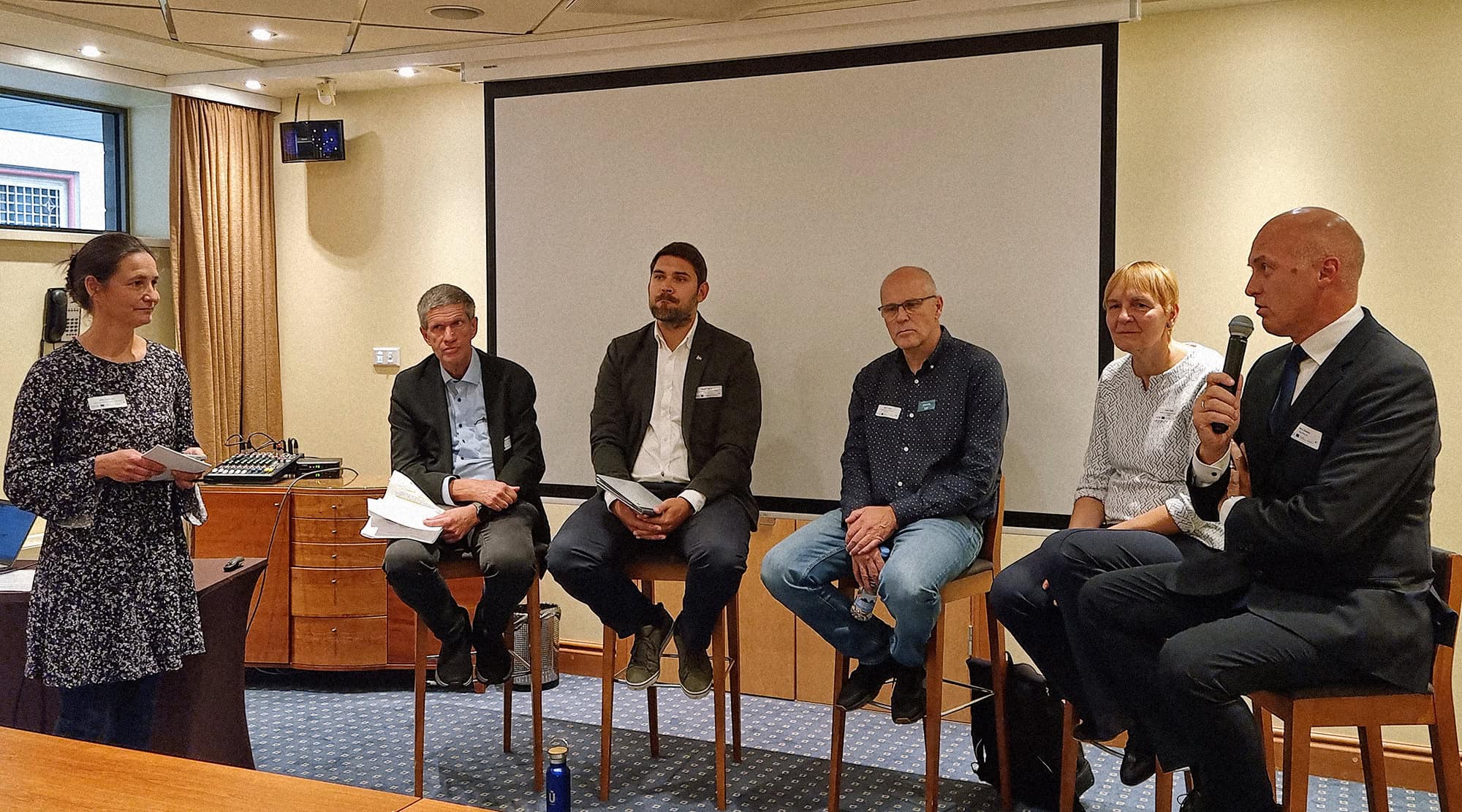
On the photo: Piia Leskinen moderating the panel discussion with (from left to right) Matthias Barjenbruch (Berlin University of Technology & German Association for Water, Wastewater and Waste), Sandis Dejus (Latvian Water and Wastewater Works Association), Bertil Lustig (Swedish Water & Wastewater Association), Iveta Teibe (Ministry of Climate and Energy), Māris Zviedris (Riga Water Ltd. / WWTP Daugavgrīva).
Some of the identified challenges are already being addressed by the EMPEREST project, as we develop the PFAS risk assessment tool and prepare the training package on PFAS for water operators and local authorities. The rest can be achieved through the continuous dialogue and exchange across the region – we hope that our workshop contributed to the increased PFAS awareness in Latvia, and the cooperation between the experts will continue!
Written by: Mariia Andreeva and Lotta Lehti (UBC Sustainable Cities Commission)
